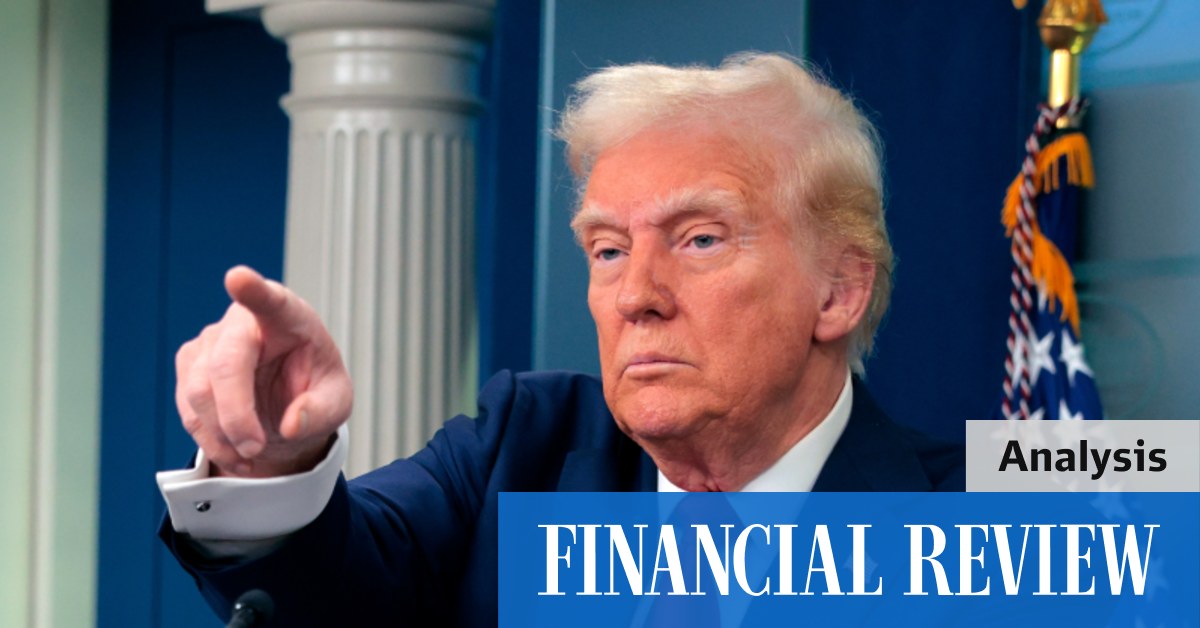Trump's Tariffs: Did The "Paper Tiger" Roar Or Whimper?

Discover more detailed and exciting information on our website. Click the link below to start your adventure: Visit Best Website. Don't miss out!
Table of Contents
Trump's Tariffs: Did the "Paper Tiger" Roar or Whimper? A Retrospective Analysis
Donald Trump's presidency was marked by a significant trade policy shift: the imposition of tariffs on billions of dollars worth of imported goods. Initially hailed by supporters as a powerful tool to revitalize American industry and renegotiate unfair trade deals, critics dismissed them as a "paper tiger," ineffective and ultimately harmful to the US economy. So, five years on, did these tariffs roar or whimper? The answer, as with most complex economic issues, is nuanced.
The Rationale Behind the Tariffs:
Trump's administration argued that these tariffs were necessary to address what it perceived as unfair trade practices, particularly from China. The stated goals included:
- Protecting American jobs: By making imported goods more expensive, the theory went, consumers would shift to domestically produced alternatives, boosting American manufacturing and employment.
- Reducing the trade deficit: Tariffs were intended to curb imports and encourage exports, thus narrowing the trade gap.
- Strengthening national security: Certain tariffs targeted industries deemed critical to national security, like steel and aluminum.
The Economic Realities: Winners and Losers
While the initial impact saw some sectors, particularly steel and aluminum producers, experience short-term gains, the long-term effects were more complex. Studies from organizations like the Peterson Institute for International Economics have pointed to significant negative consequences:
- Increased prices for consumers: Tariffs directly increased the cost of imported goods, leading to higher prices for consumers on everything from clothing to appliances. This inflationary pressure disproportionately affected lower-income households.
- Retaliatory tariffs: Other countries responded with their own tariffs on American goods, leading to a trade war that harmed American exporters. Agricultural producers, for example, faced significant losses due to retaliatory tariffs from China.
- Disrupted supply chains: The imposition of tariffs disrupted global supply chains, leading to shortages and increased costs for businesses.
Beyond the Economic Impact: Geopolitical Ramifications
The Trump tariffs had far-reaching geopolitical consequences. The trade war with China escalated tensions between the two superpowers, impacting global stability. The tariffs also strained relationships with key allies, highlighting the complexities of unilateral trade policy.
The Verdict: A Mixed Bag
Ultimately, determining whether Trump's tariffs were a roaring success or a whimpering failure depends on the metric used. While some domestic industries experienced short-term benefits, the overall economic impact appears largely negative, leading to increased prices, disrupted supply chains, and strained international relations. The long-term effects are still unfolding, and economists continue to debate the full extent of the consequences. Further research and analysis are needed to fully understand the lasting legacy of this controversial trade policy.
Further Reading:
Keywords: Trump tariffs, trade war, trade deficit, economic impact, China tariffs, protectionism, globalization, international trade, US economy, inflation, supply chain disruption.

Thank you for visiting our website wich cover about Trump's Tariffs: Did The "Paper Tiger" Roar Or Whimper?. We hope the information provided has been useful to you. Feel free to contact us if you have any questions or need further assistance. See you next time and dont miss to bookmark.
Featured Posts
-
Retour De Serge Atlaoui 19 Ans De Prison En Indonesie Un Retour En France Attendu
Feb 06, 2025
-
Aspartame Et Cancer Quels Sont Les Risques Et Quels Produits Sont Concernes
Feb 06, 2025
-
How To Spot Reliable Health Information Online A Critical Guide
Feb 06, 2025
-
Ukraines Nuclear Preparedness Under Scrutiny Amidst Russian Attacks
Feb 06, 2025
-
Ohio Warehouse Shooting Police Seek Person Of Interest After One Killed Five Injured
Feb 06, 2025
